A gentle reminder, everyone.
Today, Aug. 6, marks the 74th anniversary of the atomic bombing of Hiroshima.
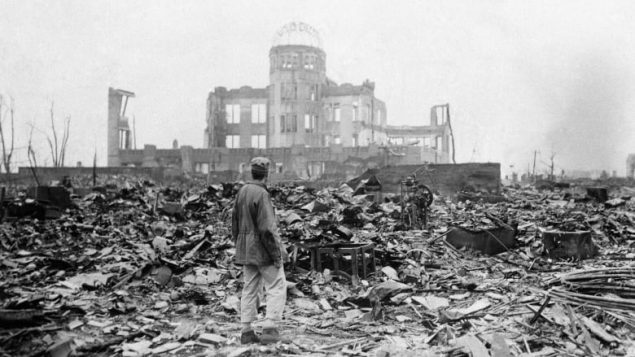
In this Sept. 8, 1945 file photo, an allied correspondent stands in the rubble in front of the shell of a building that once was a exhibition centre and government office in Hiroshima, Japan, a month after the first atomic bomb ever used in warfare was dropped by the U.S. on Aug. 6, 1945. (Stanley Troutman/Associated Press)
About 140,000 people died that day.
When a similar bomb dropped three days later on Nagasaki, 70,000 more people died.
“The bomb exploded within 100 feet of the aiming point. The fireball was 18,000 feet across. The temperature at the centre of the fireball was 100,000,000 degrees,” wrote the famed Roman Catholic monk and theologian Thomas Merton in his Original Child Bomb.
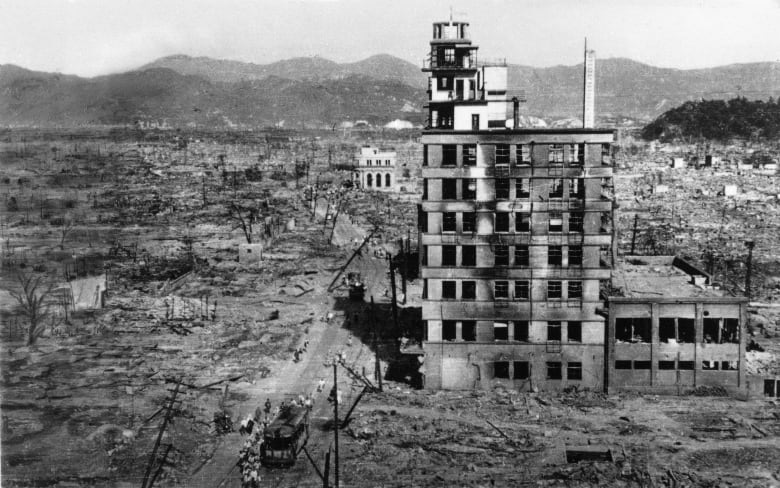
In this Aug. 8, 1945 file photo, the shell of a building stands amid acres of rubble in this view of the Japanese city of Hiroshima. (Mitsugi Kishida/Associated Press)
“The people who were near the centre became nothing. The whole city was blown to bits and the ruins all caught fire instantly everywhere, burning briskly.”
So far, the world has managed to escape anything comparable to those two bombing missions in Japan 74 years ago.
For those of us of a certain age, those missions shaped our lives forever: sometimes bubbling through our collective unconscious, sometimes when we had to “duck and cover” in our elementary school classrooms, sometimes when we took to the streets in an anti-nuclear protest.
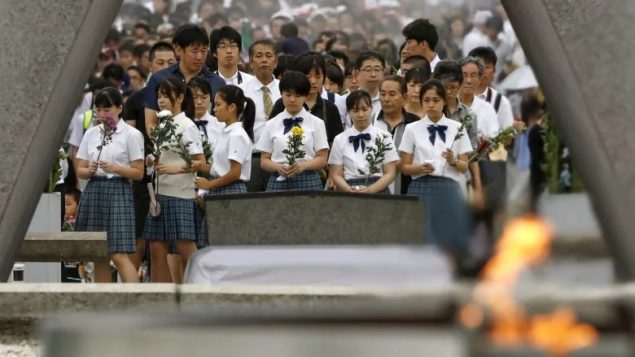
People pray today for atomic bomb victims in front of the cenotaph for the victims of the 1945 atomic bombing at Peace Memorial Park in Hiroshima. (Kyodo/Reuters)
But as people get younger and the event fades farther, we may ask what will happen now?
The mayor of Hiroshima supplied some rhetorical answers today, urging world leaders to work toward achieving a world without atomic weapons.
“Around the world today, we see self-centred nationalism in ascendance, tensions heightened by international exclusivity and rivalry, with nuclear disarmament at a standstill,” said Kazumi Matsui.
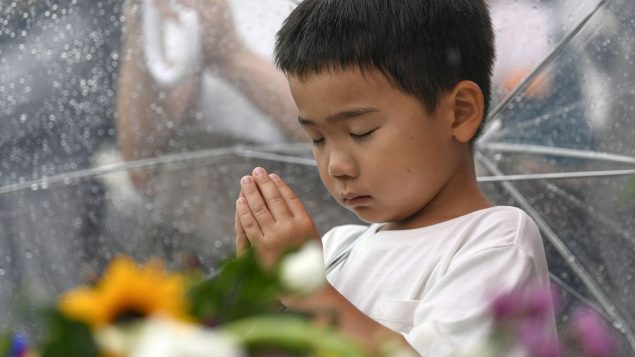
A boy prays for the atomic bomb victims in front of the cenotaph at the Hiroshima Peace Memorial Park in Hiroshima, western Japan during a ceremony today to mark the 74th anniversary of the bombing, Aug. 6, 1945. (Kyodo News via AP)
The mayor urged younger generations never to dismiss the atomic bombings and the Second World War as mere events of history, but to think of them as their own.
And he called on world leaders to visit Japan’s two nuclear-bombed cities to learn what happened.
I was lucky enough today to encounter a man who once did exactly that.
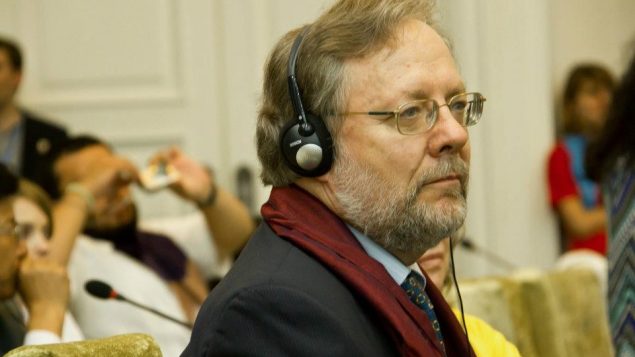
Paul Hannon is the executive director of Mines Action Canada. (Mines Action Canada/Facebook)
His name is Paul Hannon.
He is the executive director of Mines Action Canada, an organization devoted to “working to eliminate the serious humanitarian, environmental and development consequences of indiscriminate weapons.”
He joined me by phone from his office in Ottawa.
Listen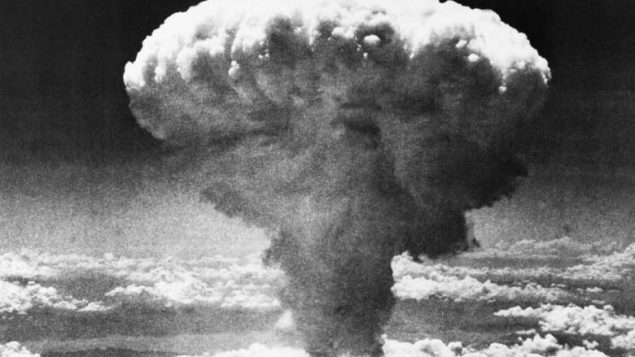






For reasons beyond our control, and for an undetermined period of time, our comment section is now closed. However, our social networks remain open to your contributions.